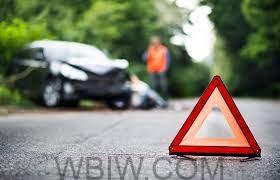
INDIANA – Labor Day is the official end of “The 100 Deadliest Days of Summer”. Unfortunately, the Labor Day holidays ends this period with a grim statistic. Many families are planning their vacation, barbecues and are having late-summer road trips.

Therefore Labor Day brings with it an increase in road travelers and also an increase in road fatalities.

Tim Waldenback, co-founder of Zutobi said, “Labor Day is a wonderful holiday worth spending on a family trip. When planning a trip, it is important to think not only about entertainment, but also about the safety of your road. The major causes of road accidents are due to driver errors.
For example, drunk driving fatalities have not been this high in over a decade.
“At Zutobi, we want everyone to be safe on the roads,” said Waldenback. “Our mission is not only to prepare our users for the DMV permit test and driving test, but to prepare for a life on the roads and educate responsible drivers”.
Zutobi has analyzed the latest NHTSA data collected for the Labor Day weekend and prepared useful tips about safe driving on this high intensity weekend.
How dangerous is driving during the Labor Day weekend?
According to the National Highway Traffic Safety Administration, 433 people were killed during the Labor Day weekend in 2019, and thousands more were injured. The number of traffic deaths increased by 37% compared to equivalent non holiday periods.
The holiday also marks the second-worst weekend to be on the roads in the United States, averaging 133 deaths per day in 2019. Only Memorial Day weekend’s deadly average of 139 deaths per day comes in ahead.
There are more alcohol-impaired fatalities than normal Nationwide, alcohol-impaired fatalities (involving blood-alcohol content of 0.08 g/dL or higher) in 2019 represented 28% of the total traffic fatalities. During the Labor Day period, 38% of the fatalities involved an alcohol-impaired driver.
Labor Day Holidays Traffic Safety Tips
Don’t Drive Distracted
Distracted driving happens whenever you take your attention from the road, whether you’re eating, having a conversation, or texting a friend. Of course, it’s impossible to drive completely distraction-free, but there are ways to drastically reduce distractions.

- Put away your phone. There are many ways for drivers to reduce the number of distractions from their phone.
- If you’re driving to an unfamiliar place, input the destination in your navigation device before you pull out of the driveway.
- Text, eat, and do your makeup before you leave. Make an effort to plan ahead so you’re not forced to multitask while driving.
- If you want to listen to music, audiobooks, or the radio, keep the volume moderately low and be vigilant about keeping the majority of your attention on the road.
Keep a Safe Margin
These days the roads are usually very busy. You should have a sufficient distance to the vehicle in front so that you have time to react and safely stop or steer away to avoid a collision.

A general rule is to have at the very least a 3-second gap to the car in front of you, called the ‘3-second rule’. You can measure this by a simple test:
- Note when the vehicle in front of you passes an object (a road sign, building etc.) and count the seconds until you pass the same object
- If less than 3 seconds, slow down!
- If just above 3 seconds, it’s still safer if you slow down additionally
Keep Your Vehicle in Good Condition
Your vehicle’s condition is a fundamental component of safe driving. You could be the safest, most aware driver in the world, but without a safe vehicle, you’re still putting yourself, your passengers, and other road users at risk.
- Get your vehicle serviced. Some maintenance tasks, such as oil changes, need to be completed. It’s also a good idea to have a professional look at your vehicle to make sure everything is working well.
- Have warning lights checked. If dashboard warning lights (such as the check engine light) turn on, have your vehicle checked as soon as possible.
- Keep an eye on your vehicle lights. Especially if you drive mostly during daylight hours, it can be hard to be sure if your vehicle lights (headlights, brake lights, tail lights, turn signals, and license plate lights) are working, but try to check them every few months.
- You’ll also want to make sure that light covers aren’t clouded, cracked, or missing.
Don’t Depend on Other Drivers
- Always drive expecting others to make poor decisions, and have an escape route in case they do.
- Stay away from drivers who are speeding excessively, tailgating, weaving through traffic, switching lanes without signaling, or otherwise showing unsafe driving behavior.
Wear Your Seat Belt
Safety belts and car seats are one of the best ways you can give yourself and your children the greatest chance of survival if you crash.

- Make wearing your seatbelt a habit and ensure that children are in the right car seat type for their age and size.
Plan Ahead for Road Congestion
With more drivers on the road this holiday weekend there is likely to be more slowdowns and congestion.
- Drivers should plan ahead and leave extra time to ensure a timely and safe arrival. If possible, drivers should try to avoid traveling through the peak rush-hour times.
About Zutobi: Zutobi is an easy and affordable online Driver Education resource that teaches new drivers everything there is about driving and driver safety. We want everyone to be safe on the roads, and the best way to do that is to make sure that everyone has access to quality
driver’s education.



